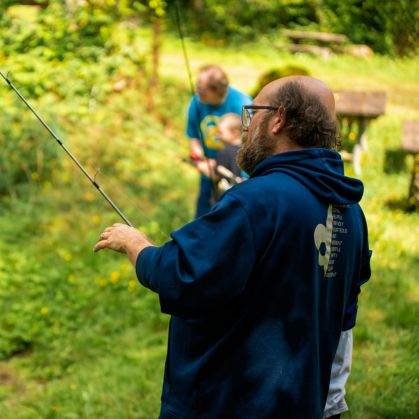Podcast Topic
Many people feel pressure to be perfect. Whether it comes from society, friends, or even themselves, the idea of perfection can weigh heavily on the mind. From a faith perspective, though, it’s important to remember that no one is perfect, and that’s okay. In fact, striving for perfection is not what we are called to do. Instead, faith teaches us about grace, growth, and the beauty of being human—flaws and all.
One of the first things to understand is that we are all created with imperfections. We are not expected to get everything right all the time. Our imperfections make us unique, and they help us learn important lessons. In faith, there’s an understanding that we are made with both strengths and weaknesses. These weaknesses are not mistakes but part of a greater plan. They give us opportunities to grow, to learn, and to rely on faith.
In many faith traditions, the idea of grace is central. Grace is the idea that we are loved and accepted, not because of what we do or how well we do it, but because we are loved by a higher power. This love is not earned by being perfect. Instead, it is freely given, no matter what. Knowing this can bring a sense of peace, especially when we feel like we are falling short.
Faith also teaches that mistakes are part of the journey. Everyone makes them, and they can be powerful tools for growth. When we make a mistake, it’s easy to feel guilty or ashamed. But faith reminds us that these moments are not the end. They are stepping stones. By accepting our mistakes and learning from them, we grow closer to understanding who we are meant to be. It’s not about being perfect; it’s about becoming better over time.
Another important concept in faith is forgiveness. Just as we are encouraged to forgive others when they hurt us, we are also called to forgive ourselves. We often hold ourselves to high standards and can be harsh when we don’t meet them. But just like we would offer kindness and forgiveness to a friend who made a mistake, we need to show that same kindness to ourselves. Forgiving ourselves when we fall short is a way of embracing grace and moving forward instead of getting stuck in guilt.
Perfectionism often leads to comparison. We see others who seem to have it all together, and we feel like we aren’t good enough. But faith teaches us that we each have a different path to walk. We all have our own unique gifts, challenges, and journeys. Comparing ourselves to others can make us forget the good in our own lives and the progress we’ve made. Faith encourages us to focus on our own growth, not the growth of others.
It’s also worth noting that many stories of faith heroes are not stories of perfect people. Often, the most celebrated figures in faith traditions have flaws and make mistakes. They doubt, they fail, and sometimes they fall far from where they want to be. Yet, these stories are not about their perfection; they are about their perseverance and their reliance on faith. They show us that what matters is not how perfect we are, but how we respond to challenges and how we continue to trust in something greater than ourselves.
Being imperfect also allows us to build relationships with others. When we let go of the need to be perfect, we can be more honest and vulnerable. This opens the door to deeper connections with people. We can support one another, share in our struggles, and celebrate each other’s successes without the pressure of pretending to have everything figured out. Faith communities often thrive when people come together as they are, imperfections and all, to support and uplift one another.
Ultimately, faith invites us to focus less on perfection and more on love—love for ourselves, for others, and for the world around us. Love doesn’t require perfection. It requires patience, kindness, and understanding. By accepting our imperfections, we allow more room for love to grow in our lives. We learn to accept others as they are, too, realizing that everyone is on their own journey.
It’s okay not to be perfect. From a faith perspective, we are reminded that perfection is not the goal. Instead, we are encouraged to grow, to learn from our mistakes, to forgive ourselves and others, and to embrace the grace that is freely given to us. Our imperfections make us human, and being human is something to be celebrated.
About The Host

Danny Hall
You’ll rarely catch Danny facing the camera. This is due in large part to the fact that he has dedicated his life to teaching the upcoming generations how to be better people, how to be self sufficient, and how to treat others the way they would like to be treated, following the teaching “whatever you did for one of the least of these brothers and sisters of mine, you did for me.”






